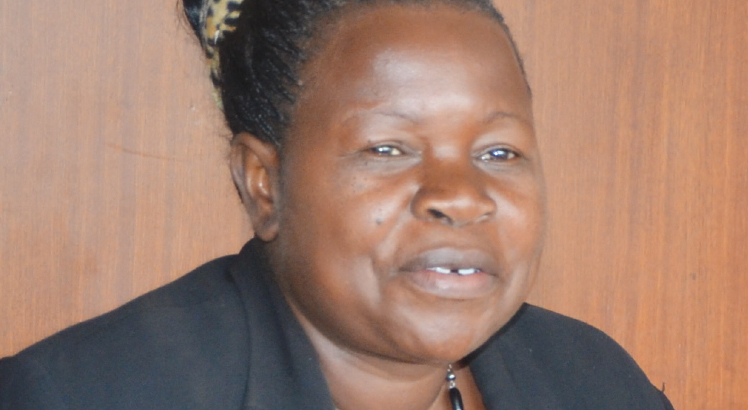It has emerged that Ministry of Agriculture bypassed the Anti-Corruption Bureau (ACB) in the K750 million fertiliser import deal with a United Kingdom firm despite the law demanding vetting of all high-value procurement contracts.
In a written response to our questionnaire yesterday, ACB spokesperson Egrita Ndala said the graft-busting agency did not vet this particular procurement which has attracted questions from the public and a procurement specialist.
“We thank you for your questionnaire. The bureau did not receive that contract for vetting. We hope the foregoing is to your satisfaction,” she said.
Section 37 (11) of the Public Procurement and Disposal of Assets Act states: “Single source method of procurement or any high value procurement shall be subject to vetting by the Anti-Corruption Bureau, pursuant to the powers conferred on the bureau under Section 10 of the Corrupt Practices Act”.
Ndala: We did not vet this particular procurement
Meanwhile, the Human Rights Defenders Coalition (HRDC) has called on the bureau to investigate allegations of bribery in the deal.
In a statement issued yesterday signed by HRDC chairperson Gift Trapence, the coalition condemned the manner in which government conducted this transaction.
Reads the statement: “We feel that this alleged scam is reckless and embarrassing to the government.
“HRDC, therefore, calls for President Lazarus Chakwera to take immediate action to ensure that those responsible ought to be taken to task. We also call upon the Anti-Corruption Bureau to institute investigations in this scandal and bring those involved to account.”
Ministry of Agriculture yesterday issued a statement stating that it awarded a K750 million contract to the supplier.
The statement came a day after Parliamentary Committee on Agriculture alleged that government had lost about K30 billion in a dubious fertiliser contract.
But in the statement, Ministry of Agriculture Principal Secretary Sandram Maweru said Smallholder Farmers Fertiliser Revolving Fund of Malawi (SFFRFM) had a contract with a United Kingdom-based company Barkaat Foods Limited to supply fertiliser for the 2022/23 AIP programme.
The company, according to the statement, had a deal with the actual supplier Yara Limited UK for an initial 25 000 metric tonnes of fertiliser and demanded a commitment fee of $727 000 (about K750 000 000) to lock the price. The money was remitted through Ecobank.
Reads the statement: “Barkaat Foods Limited failed to supply and consequently terminated the contract citing loss of the production line at Yara UK and that they could no longer commit to supply the fertiliser and agreed to transfer the fee back to SFFRFM through the same Ecobank.
“This advance commitment fee payment of about K750 million is under recall by Ecobank and will be received by the end of this month of October 2022.”
Maweru did not respond to our questionnaire seeking to understand how the contract was procured, including due diligence.
Ministry of Agriculture spokesperson Gracian Lungu said they have taken a position not to comment on matters relating to Affordable Inputs Programme (AIP). He said the issues will be attended to during a planned AIP press briefing to be done any day.
Efforts to get the position of Public Procurement and Disposal of Assets Authority did not yield anything as our questionnaires have not been responded to.
But Vincent Sekelo director of Government Contracting Unit, which also vets public contracts to ensure value for money, asked for more time to check if this is something they looked at.
In a separate interview, procurement specialist Alinafe Banda-Malisawa said the present case exposes weaknesses in the procurement processes.
She said under normal circumstances before committing to make upfront payment, a risk assessment is supposed to have been done. She added that advance payment is more common in procurement of works than goods.
Banda-Malisawa said: “If it has to happen in goods then you need an advance payment guarantee as a security on your end. For procurement of works this is common because you use certificates but for procurement of goods I would say it is not a good practice. But if it happens there has to be an advance payment guarantee.”
On the possibility of Malawi Government reclaiming its money in the absence of the guarantee, the former Malawi Institute of Procurement and Supply president said it will depend on what is stated in the contract.
While the status of AIP is not clear, there are reports that a ship carrying 20 000 metric tons of Urea from Nigeria docked at Beira in Mozambique from Nigeria in August. Malawi is also expecting a donation of 10 000MT of Urea from Morocco, according to sources.
But when presented with the information on the fertiliser consignment, Maweru said it was not yet for public consumption.
“It is not yet for public consumption for reasons I cannot divulge for now. We will inform the nation at an appropriate time,” he said.
Our sister newspaper, Weekend Nation reported that a whopping K900 billion has been spent on subsidies the past 17 years, but did not lift the poor from food insecurity forcing government to spend another K500 billion to feed them.
Fertiliser Association of Malawi data shows that in the past five years, the annual fertiliser market in Malawi is between 350 000 and 370 000 MT.
Following the launch of the AIP, which almost quadrupled the number of beneficiaries to 3.6 million from 900 000 under its forerunner, Fisp, the requirement has increased to between 400 000MT and 450 000MT.
In the 2022/23 National Budget, AIP has claimed K109.5 billion, representing 85 percent of the agriculture sector budget. The allocation is a K33 billion decline from the previous year’s K142 billion. n
The post ACB sidelined In k750m deal appeared first on The Nation Online.
 Moni Malawi
Moni Malawi 

